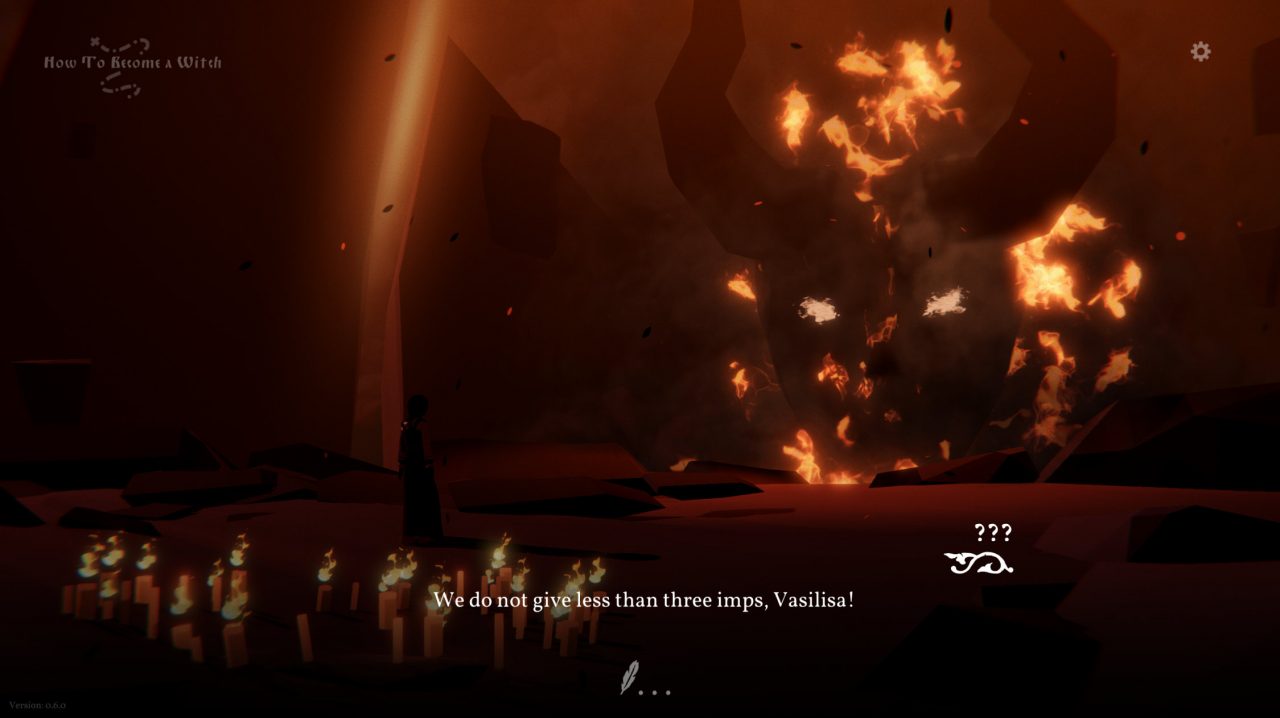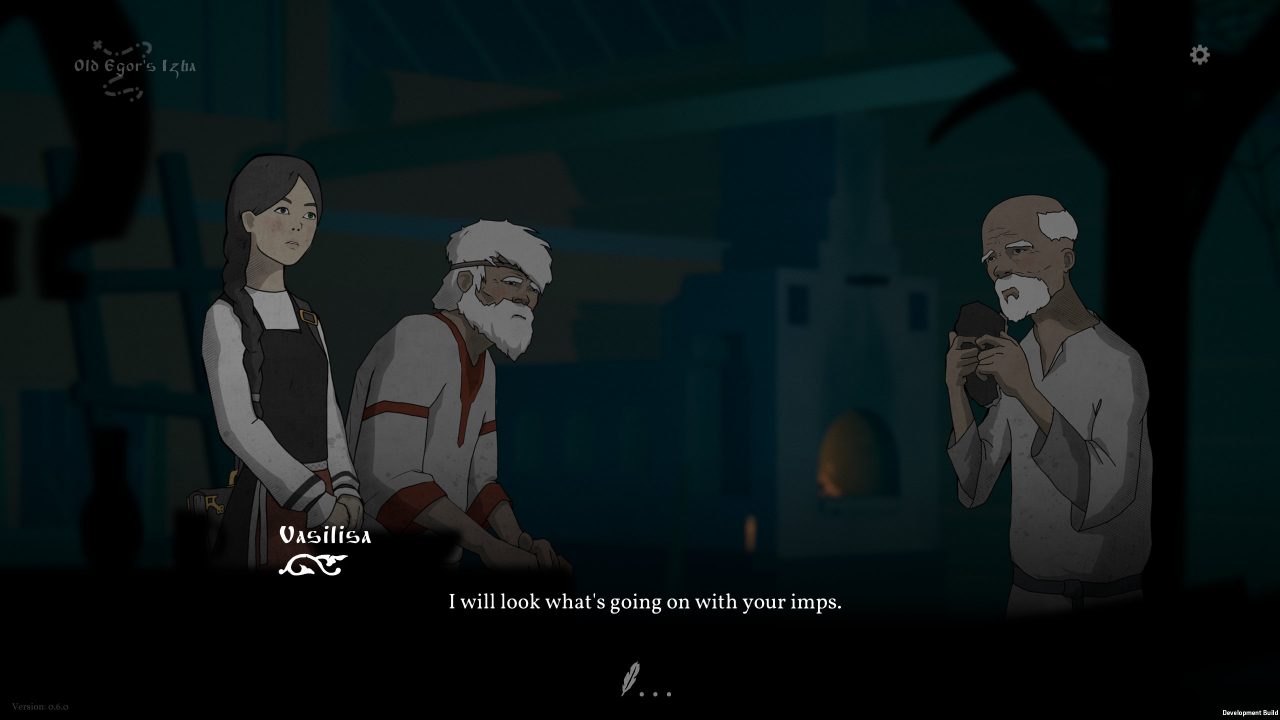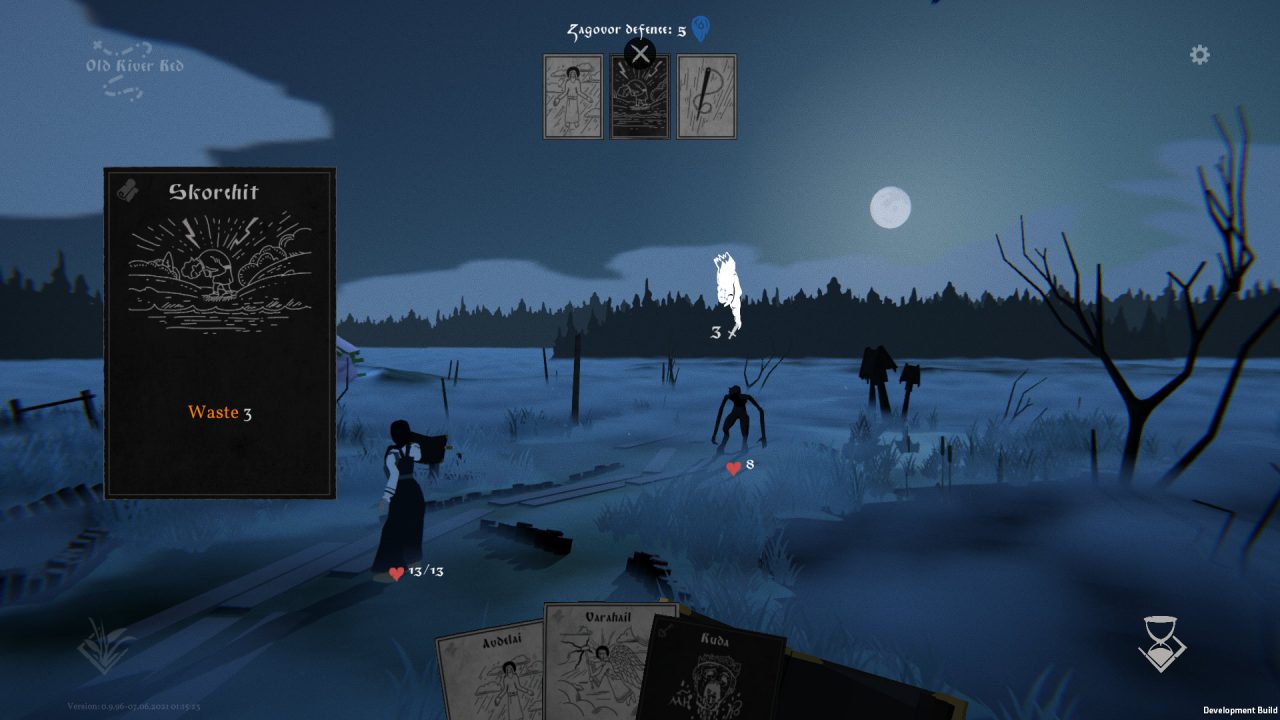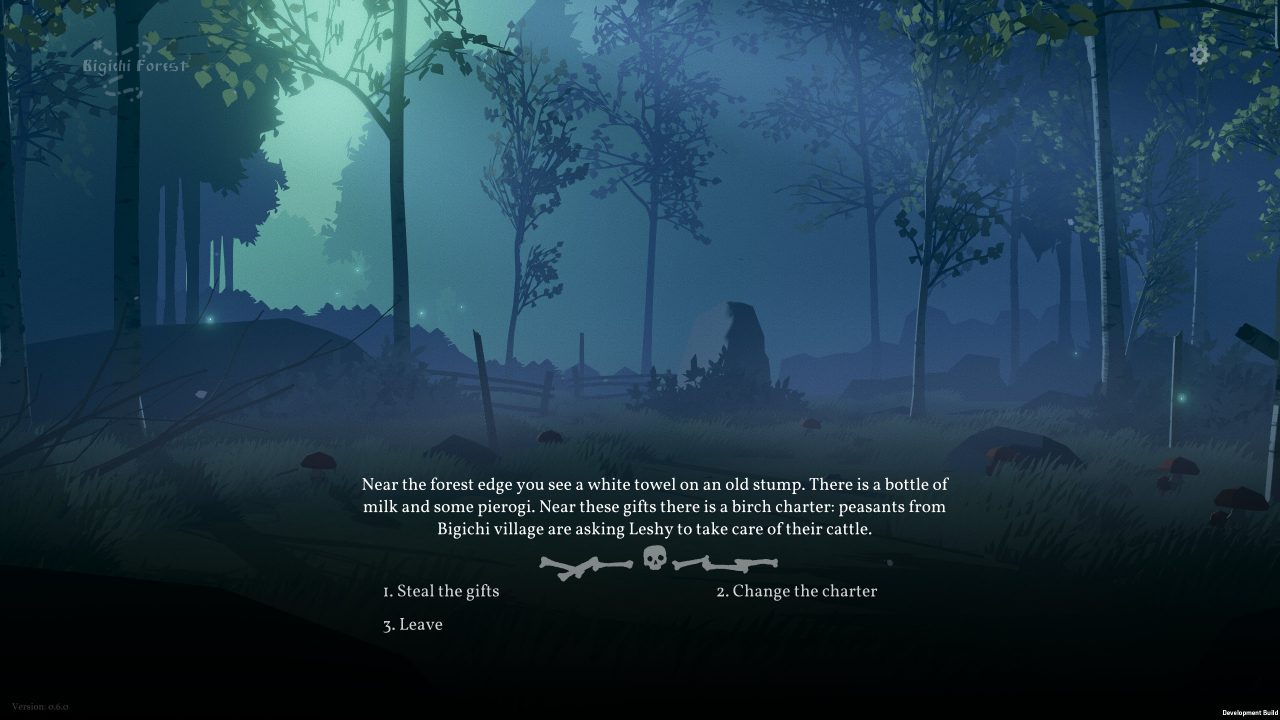Having the choice of good or evil deeds has become an almost expected feature in video games, especially RPGs. It was at one point a breath of fresh air for a medium so full of white knight characters, and even anti-heroes have become stale over the years. Games rarely give you a brush with straight-up evil as your starting point. Black Book comes at you like a bat out of Hell, putting you in the shoes of a character whose power comes from Satan himself.
In Black Book, by developers Morteshka, you take on the role of Vasilisa, a koldun (a witch or sorcerer) in a family line of kolduns. Though she’s resisted taking up the family business, her husband’s death pushes her over the edge. Buried in a nameless grave in unconsecrated ground, he’s destined for Hell. So Vasilisa finally accepts her inheritance, taking up the black book of spells and the dark power that comes with it. Of course, that power comes at a great cost. Kolduns must make a certain pact to receive their magical abilities. So, Vasilisa makes a deal with the literal devil, with the goal of retrieving her hubby to bring him back to the Earthly realm. That got dark fast.
The game is structured like a roguelite, but also has much in common with more traditional turn-based RPGs. You could call it a Slay the Spire-like, pairing a similar card-based deck-building combat system with a much stronger narrative. Black Book puts that system to good use, serving up a variety of cards with which to conquer your demons. Taking place in late 1800s Russia on the cusp of the Communist Revolution, Black Book takes you on a storybook journey into dark myths and folk legends of that time period, involving demons, curses, and sorcery.

Vasilisa makes for one of the more conflicted protagonists of recent memory. There’s always a weighty downside to being in league with Satan, so you get the sense that her journey’s end might come with grave consequences. But despite giving in to the dark side, she’s generally a good-natured person who wants to use her ill-gotten power to protect humans from the demons who pester them. Attempting to rescue her husband from Hell has the sound of a fool’s errand, and her decision to take up the black book is not necessarily selfish, but it’s probably a longshot. She’s not so much anti-heroic as she’s a-heroic. For every charitable deed she does, she makes a decision that’s equally harmful in the cause of advancing her own goals. Despite being unsure how much I should have rooted for her to complete her schemes, I was still invested in her story or at least always interested enough to see where she’d go next. Sometimes her decisions are yours to make, and your choices may come back to haunt you down the road.
Black Book is drenched in rich stories and characters. A few companions join you at your izba (your home), offering lively conversation and a special ability in battle. Most important is Proshka, the demon who has manifested himself as a feline and is a strong candidate for Cat of the Year. Each of your friends has their own sidequest that digs deeper into their story and rewards you with a slightly improved combat skill. There are recurring characters in the world, too, who often have shifting, secretive motives. It’s always a treat when a pair of drowners (sea demons only slightly more cognitively functional than zombies) pop up. You meet other kolduns, as well, whose motives often conflict with Vasilisa’s.
When there’s something strange in your neighborhood, who ya gonna call? Vasilisa! Evil spirits are so prevalent in this world that whenever any problem arises, whether it’s broken machinery or a bad cold, it’s usually the fault of supernatural creatures. But demons are people, too. They’re not all bad, but they are tricky. Of course, humans aren’t exactly trustworthy either. Villagers’ pleas for help send you on trips to varied locales to complete engaging tasks. In one chapter, you learn about the violent and tragic lives of mermaids, and in the next, you’re making arrangements for a changeling’s wedding. You will become well-versed in the many types of demons by the end of this game.

As I said earlier, Black Book’s structure resembles a roguelite but is also unique. For each task you’re given, you get a map showing a linear path to your destination, dotted by nodes along the way, much like a roguelike. At each node, you have a narrative encounter that may involve combat, conversation, or some other insightful event. There’s some exploration off the main path, but you must weigh risk versus reward. If you play poorly, you may be unable to complete your current quest, and you may need to start over. That said, the game is forgiving, at least on standard difficulty, even letting you bypass battles if you fail a few times. I’m the type of person who can’t let challenges like that go, so I didn’t use this function.
In each round of combat, you get a hand of pages (cards), and you play a set number of them—that increases as you progress—to form a zagovor (a spell), doing attack damage to your enemies or building up your defenses. Beyond simple attacks and defense, there are also plenty of duration effects to play with, like Waste, which does a certain amount of stackable damage to your opponents over several turns, and Ward, which gives you additional defense each turn without expending a zagovor slot. Finally, elements on many cards interact with each other, allowing you to multiply your attack or defense values to ridiculous levels, Disgaea style, if you play your cards right.
Boss battles make for puzzly affairs that are satisfying to crack. I often found myself reworking my entire deck to try a new strategy. There’s some trial and error to figuring out how to handle tougher creatures, but it’s the good sort of challenge. Puzzly makes it sound like there’s only one right solution, but I found that Black Book honored my preferred strategies while also pushing me to augment my plans by digging into new mechanics that became available throughout the game. It was always interesting considering the best way to exploit each hand, even in standard battles.

In games with card combat, there’s also the metagame of building a winning deck. Setting up your spellbook with pages that fit a cohesive strategy can be as interesting as the battles themselves. Each chapter of the narrative opens up new cards, most of which you must discover while exploring. I haven’t played Magic: The Gathering in a couple of decades, but I remember the feeling of excitement and curiosity whenever a new expansion was released. As each chapter of Black Book dropped new cards, I got a similar feeling, wanting to collect a bunch of new cards and see if they’d be a good fit for my deck.
Unfortunately, Black Book gets off to a slow start, both narratively and in terms of gameplay, but your patience is rewarded if you stick with it. After a fiery intro, the first chapter sputters out. A story revolving around demons and Hell is expectedly going to have a more dour edge, but the beginning felt a little too standardly grimdark. Similarly, the gameplay was a bit simple at first, probably to give players time to breathe and get used to combat before introducing more complex concepts. But if you have experience with roguelikes, the “getting to know you” period might feel longish. Thankfully, the game blossoms, both in story and combat, starting in chapter two, and it’s all high-quality stuff from there.
Another issue is that Black Book’s explanations of combat and card abilities are often lacking. The card abilities often worked differently than their description led me to expect, though they weren’t difficult to understand once I tested them out. The game is not too unforgiving, so this isn’t a major issue, but more explanation would have made for a smoother experience. Tutorials accessible via menu are standard these days, but are absent in Black Book. Especially because the game’s intro threw a ton of information at me, a refresher would have been helpful later on.
In one example of an undefined mechanic, the game doesn’t tell you how many cards you draw each turn during combat, making cards that let you draw more cards difficult to utilize properly. Also poorly explained is Durak, a more strategic version of War, played with standard playing cards. The idea of playing cards with demons with your soul at stake sounds like an awesome thematic diversion, but not if you don’t understand how to play. Though the general lack of explanation is not insurmountable, it clashes with a game that expects players to work with precise information.

Black Book has a gorgeous watercolor look that helps to drive the feeling of a deep journey into a storybook. There’s a varied range of environments — breathtaking at times — on display. Lighting effects from spells and environmental effects, like rain and smoke, pop off the screen. The only issue is that on the rare occasion that you see characters’ faces, they look like Muppets. Sometimes, the characters are presented without facial features, which I preferred. On the other hand, Portraits have a nice hand-drawn look as though they could have come from a book, too. It’s exciting to see more game designers give their work a cinematic flair; Black Book utilizes some camera tricks and angles resembling things I recently saw in The Green Knight.
The music is subtle but effective at setting the mood with its Eastern European flair. Occasionally while traveling, you come across groups of young people who want you to join them in song, represented as stirring choral pieces that are all worth taking the time to sit and listen to. The English voice acting felt hammy, but it’s impressive that many of the actors pulled double duty, also portraying their characters in the original Russian. As for controls, the mouse and keyboard (almost entirely mouse) work nicely. I played Black Book on the PC, but as it’s also on consoles, I can’t see a controller being the optimal way to play.
Morteshka’s deal with the devil has paid off, as Black Book delivers a captivating story and engaging gameplay full of strategy and variety that should keep you busy for over 40 hours. Being in league with Satan usually comes with a great price, but players should be able to overcome any curses handed down to them. With strong character development and narrative, this wicked book is a page-turner that’s worth a read.


